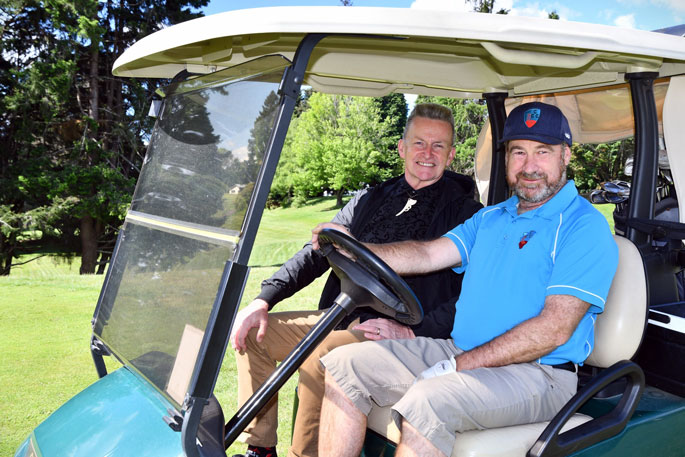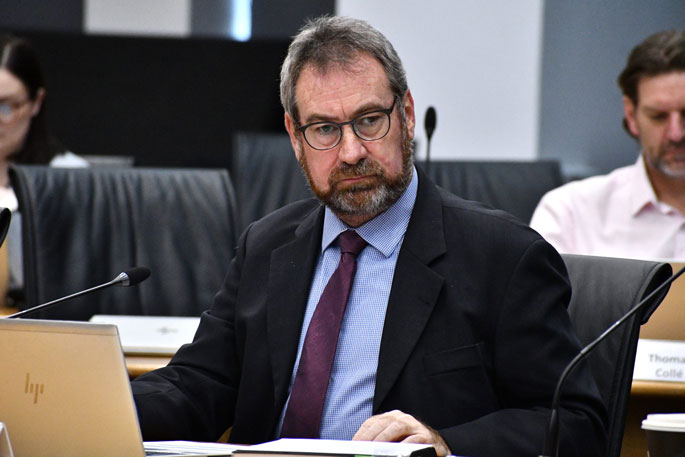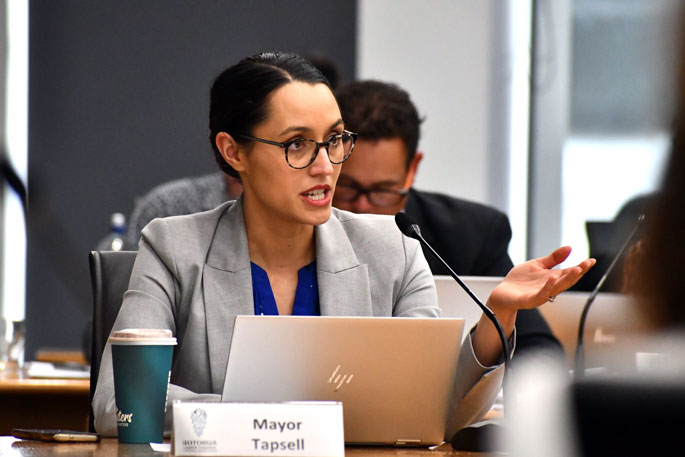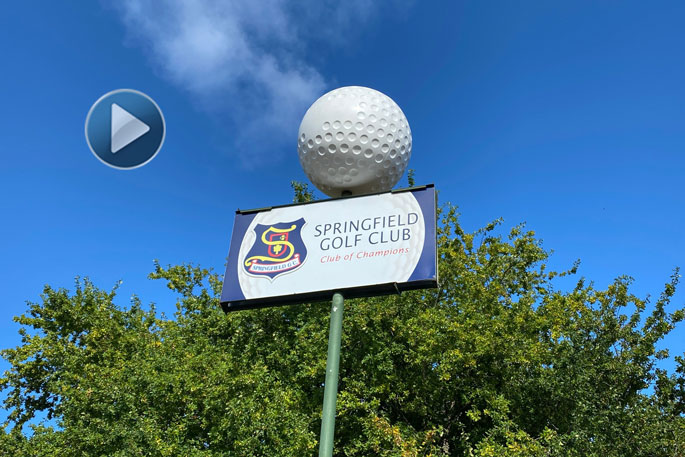Has Springfield Golf Course been saved?
That’s a matter of opinion among Rotorua councillors, but the president of the club says yes.
Rotorua Lakes Council has voted to approve a new 30-year lease for the Springfield Golf Club to occupy its largest parcel of freehold land, about 34ha, with the 18-hole course.
Wednesday’s council meeting – the last of the year – opened with a rendition of Feliz Navidad led by councillor Rawiri Waru.
However, like previous Springfield debates, heated exchanges followed, including claims of “disrespectful” behaviour.
The golf club’s land lease expires in 2027. Negotiations over the last few months between the club and council chief executive Andrew Moraes resulted in a compromised new lease start date of January 1, 2026 instead of 2025 and an annual rental starting at $15,000 instead of $20,000.
Rent would be reviewed every three years. The lease was signed by the club and was awaiting Moraes’ signature.
A controversial alternative-use clause remained and could be triggered after eight years with a two-year notice period, allowing the council to use the land for either recreation or stormwater mitigation, following community consultation.
In recent years, the council debated using the land for sports grounds as part of the proposed Westbrook Sports and Recreation Precinct or for housing, sparking community backlash.
In 2021, the Saving Springfield group collected 5017 signatures on a petition asking the council to declare the golf course a taonga and continue its lease.
Two former lobby group presidents living near the course, Robert Lee and Don Paterson, were elected to the council in 2022.
 Councillors Don Paterson and Robert Lee at the Springfield Golf Club in Rotorua. Photo / Laura Smith
Councillors Don Paterson and Robert Lee at the Springfield Golf Club in Rotorua. Photo / Laura Smith
On Wednesday, both voted against approving the lease with the clause.
Lee clashed with Rotorua Mayor Tania Tapsell, who objected to him talking about council “propaganda” during questions from councillors.
Tapsell said that was a “disrespectful” misrepresentation and asked him to retract the word, but he refused.
Councillor Gregg Brown attempted to call for a point of order, saying Lee did not have a question during question time, to which Lee replied: “It is a question – millennials may have a short attention span so I’m a bit surprised by Councillor Brown, there.
Tapsell said Lee was again being disrespectful, but he said it was just “banter”.
Given a “final opportunity” to ask staff his question, Lee said: “The club was essentially threatened there would be no golf club come 2027 unless they signed at this time, by December. Weren’t they?”
He called the process “coercion”, not negotiation.
Organisational performance and innovation group manager Thomas Colle said, “Not at all.”
Moraes said he could “assure councillors and the public” he followed council instructions to the letter in negotiations.
Tapsell asked Lee to retract the words “propaganda” and “threatened”.
Lee said, “Absolutely not”, and argued his words were not offensive and reflected his view.
Tapsell said he was allowed that opinion in his personal capacity, behaviour befitting the council’s code of conduct was expected while sitting as a councillor.
 Councillor Robert Lee at a July meeting. Photo / Laura Smith
Councillor Robert Lee at a July meeting. Photo / Laura Smith
Lee said when he was the lobby group’s founding president four years ago, he tried to “find out why this council would dream or imagine destroying a self-funding jewel that helps make Rotorua a great place to live, work, play and invest”.
“I believe this mayor and this council have failed to deliver the changes that the community voted for.”
He referenced times when councillors Brown, Karen Barker and the mayor indicated their views on saving the course, including Tapsell’s pre-election letter to Springfield residents that said the golf course would stay.
A “guillotine clause” did not save Springfield, he said.
Tapsell said the contract ensured there was a club post-2027, and Brown said he believed the work under her mayoralty would “save the club”.
 Rotorua mayor Tania Tapsell at an October meeting. Photo / Laura Smith
Rotorua mayor Tania Tapsell at an October meeting. Photo / Laura Smith
He noted there would be no housing on the land and any change would require consultation.
Barker said they held different views on what saving the course looked like.
The lease the club signed gave them certainty but also balanced their needs with the wider community’s.
“I reject your [Lee’s] premise I have gone back on any promise I have made. This is another way of viewing saving Springfield.”
Paterson said the golf course’s future was not guaranteed for 30 years.
Club president Paul Fox told Local Democracy Reporting after the meeting he was glad it was over and both the club and the council were happy.
“It’s been like a dark cloud over our heads.”
His view was it was indeed a 30-year lease, even with the alternative-use clause, which gave it security of tenure. He would have rather had it without the clause.
“We’ll just see what happens.”
Asked if he thought Springfield had been saved, he said yes.
“It’s hard to save something that isn’t dead.”
LDR is local body journalism co-funded by RNZ and NZ On Air.




0 comments
Leave a Comment
You must be logged in to make a comment.